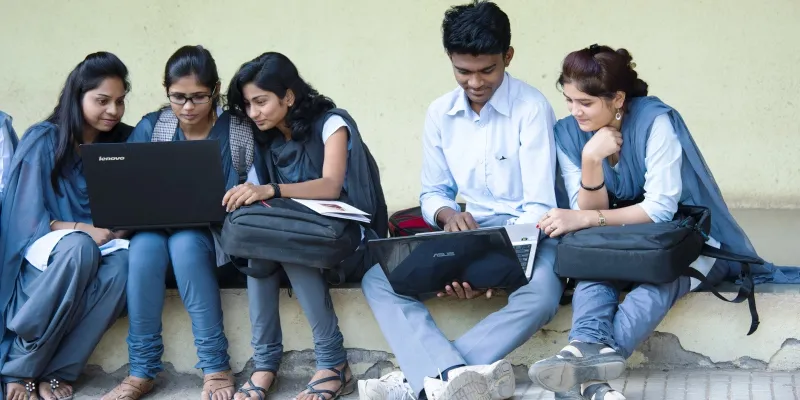Budget 2019: What it can mean for India's social enterprise ecosystem
The Startup India wave, if fine-tuned for social businesses, has the potential to solve some of our most pressing societal problems through entrepreneurship and change the face of India…for good. Here's how the Budget can help.

The government is set to present the budget to the parliament in just a few days. This will be the last budget before the general elections due in May this year and like many, I am curious to see what is coming up. While the print and TV media is fixated on debates centered around the pre-election survey, I have been busy studying the Startup India policy to see how the budget may have implications on it. The government launched the Startup India initiative in 2016, and in a mere span of two years, our country has witnessed the build-up of a strong ecosystem fostering innovation and entrepreneurship.
While FY 2018-19 was fundamental in unearthing, handholding, mentoring and nurturing many startups, there was potential for a lot more. Thus, it is the clauses of the existing policy that I would like to re-look at, for steeper scale and larger impact.
So I will first talk about my take on the existing Startup India policy, and then highlight some suggestions/recommendations to the upcoming budget. The aim of this post is to build a conversation around the central budget and its impact on the social entrepreneurship sector.
1. My take on the existing policy
1.1 Effective Utilization of Fund of Funds
The Fund of Funds introduced by the Modi government in 2016 was an important step towards making startups a viable means of livelihood for entrepreneurs. However, a substantial percentage of the 10,000 Cr fund is yet to be utilized effectively. I honestly believe that this can be made relevant to funding of start-ups, if the fund of funds targets seed stage funds. High performing incubators should be encouraged by the government to set up seed stage funds and the Fund of Funds should invest in them. Having an intermediary to facilitate this will make this happen. For instance, an incubator like Villgro or CIIE which has set-up funds (Menterra by Villgro, Bharat fund by CIIE) will be in the position to do this.
Another way to enhance the effectiveness of Fund of Funds would be to de-risk angel networks and their members. The fund of funds can serve as a first loss guarantee for angel investments made through angel networks. This possibly would also trigger larger number of such networks in tier 2-3 cities across India. Start-up India along with IAN, Native Angel Network, etc. can create this infrastructure with fund of funds de-risking them.

Also read: A 5-step guide to fundraising for social entrepreneurs
1.2 Credit Guarantee Fund (CGF)
The Credit Guarantee Fund (CGF) is another great initiative focused on small startups. However, it is still extremely difficult to access this fund since most banks continue to be risk averse. That is why the government should encourage banks to work with incubators and leverage seed funds such as from DST and BIRAC as first loss guarantee in addition to the CGF. This will truly allow the CGF to support start-ups.
1.3 Leverage the existing industry thought leaders and events
In a country as huge as India, the government cannot shoulder the burden of social issues all on its own. It should tie up with social enterprise supporting organisations like Villgro and partner in events that inspire social entrepreneurs. Villgro holds annual national conferences like Unconvention that bring together all the impact stakeholders under one roof. If the government can find a way to leverage such events, it can make the whole process of identifying talent and aiding them with reforms, a lot more easier.
2. Suggestions and recommendations for the upcoming budget
2.1 Identify and encourage talent
Fellowships are a great first step to encourage talented individuals who already have a bent towards social impact. For example – Prime Minister’s Rural Development Fellows and Teach For India Fellows spend two years deeply immersed in understanding the foundational problems of the country. It is encouraging for the fellows to become entrepreneurs after they graduate and allows them to translate that experience into impactful and innovative ideas that are grounded in reality.
There was a time when every graduating doctor had to spend a few years in a village health center. Is it possible to make students enjoying government-subsidized fees at an IIT or NIT spend a few years with start-ups in rural areas? Incubator & University networks should be leveraged to achieve this goal.

Also read: Six fellowship programmes that teach grassroots and governance in India, for the changemaker in you
2.2 Create and nurture a Mentor Ecosystem
The government should identify and rope in Senior Fellows or Entrepreneurs-in-Residence to work with start-ups. Kerala Start-Up Mission has a program that pays senior talent to do this. This could be replicated in other startup hot pockets, thereby strengthening the Social Impact Mentor Ecosystem in the country. 1000 such fellows recruited and matched with start-ups can be a great starting point.
2.3 Define Grand Challenges
The government should identify a ‘grand challenge’ for various social sector issues, and offer a significant prize to those who develop a solution for it. Such grand challenges will stimulate our scientific and engineering institutes and their high quality faculty to develop solutions to the real-world, base of the pyramid problems. Various government departments have announced these such as Agri Grand Challenge, Defence and Petroleum; but we haven’t seen significant traction in other sectors like healthcare, education, etc.
2.4 Make Working Capital accessible
One of the bigger challenges that social startups face today is accessing Working Capital while they are trying to scale up their business. Even when it is available, it is very expensive for them to access it. This problem can be eliminated by updating External Commercial Borrowings (ECB) regulations.
Like how micro finance institutions are currently allowed under the regulations to raise debt from abroad at lower cost, social enterprises should also be allowed to do so. I would even go on to say that Social Enterprises could be classified as “Priority Sector Lending” for at least a period of 10 years! This will enable banks to take the risk, become more friendly to the challenges of social start-ups and then build financing that is startup friendly.
2.5 Funding for investments
There should be a defined proportion of the Rs. 10,000 crore Fund of Funds that is earmarked just for social impact funds (SEBI’s CAT-1 AIF). This will allow larger social issues to be addressed through innovation and enterprise.

Also read: ‘There’s never been a better time to look at impact investment’ - Sir Ronald Cohen
2.6 Amend Foreign Contribution Regulation Act (FCRA)
Currently, registration under FCRA allows incubators to attract grants and donations from foreign sources for any charitable purpose. However FCRA prevents them from using the funding for any speculative activity, and equity investing in an incubatee by an incubator is considered as a speculative activity. Like it or not, foreign funding is important to encourage more capital to be directed to start-ups. Therefore, the government should consider amending/modifying the “speculative” clause and allow incubators to invest in their incubates using foreign funding.
Conclusively, it is a great time to be starting up! The Startup India wave, if fine-tuned for social businesses, has the potential to solve some of our most pressing societal problems through entrepreneurship and change the face of India…for good.
This article has been republished with permission from the author. The views and opinions expressed in this article are those of the author and do not necessarily reflect the views of YourStory.







![[YS Exclusive] Crypto startup BitSave bags Pre-Series A funding from Leo Capital](https://images.yourstory.com/cs/2/e4fd1d90231a11efb1991bdbfe47f5e7/BitSaveProfileTwitterPreview-1732553399768.jpg?mode=crop&crop=faces&ar=1%3A1&format=auto&w=1920&q=75)